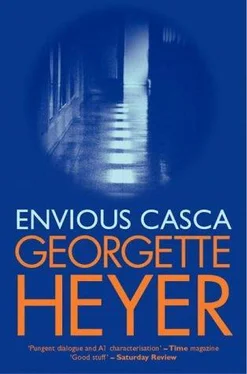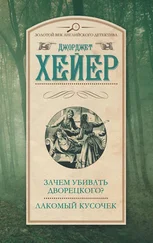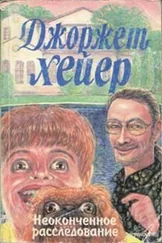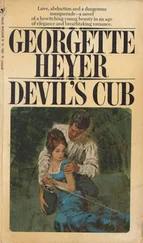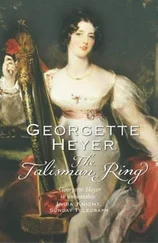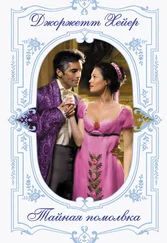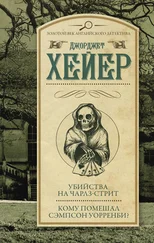"So that unless Miss Dean told him, you don't think he had any knowledge of his uncle's having made this will?"
"Not from me! I don't know what my brother may have told him, but I can assure you I never said anything about it."
The Inspector's excellent memory again proved disconcerting. "But when Mr. Herriard and his nephew had words after the reading of Mr. Roydon's play, didn't Mr. Herriard speak of making a few changes?"
"Really, I don't think I heard him! In any case, it was the sort of thing he might say if he was in a temper."
"But it would imply, wouldn't it, that he had reason to believe that Mr. Stephen knew of the provisions of this will?"
"I suppose it would," agreed Joseph unhappily. "But you can't mean to suggest that Stephen - Oh no, no! I won't believe such a horrible thing!"
"I'm not suggesting anything, sir; I'm only trying to get at the truth."
Joseph wrung his hands in one of his agitated gestures. "Ah, you think me a foolish old fellow, but I can't but see what you suspect! I know that things do look black against my nephew, but I for one am convinced that the murder wasn't committed by anyone under this roof!"
"How's that, sir? What reason have you to think that?" asked the Inspector quickly.
"Sometimes," answered Joseph, "intuition proves to be sounder than reason, Inspector!"
"I'll have to take your word for that, sir," replied the disillusioned Inspector. "I haven't found it so myself. Of course, that's not to say I won't."
"Try to keep an open mind!" Joseph begged.
"I'm paid to do that, sir," said Hemingway, somewhat acidly. "And now, if you don't mind, I'll finish what I have to do here with Mr. Blyth."
This was too pointed to be ignored. Joseph went away, his seraphic brow creased with worry. Blyth said, with a slight smile: "He means well, Inspector."
"Yes, that's a vice that makes more trouble than any other," said Hemingway. "If you ask me, there very likely wouldn't have been a murder at all if it hadn't been for him getting ideas about peace and goodwill, and assembling all these highly uncongenial people under the same roof at the same time."
"I fear you are a cynic, Inspector."
"You get to be in my profession," replied Hemingway.
The inspection of the rest of Nathaniel's papers did not take long, nor was anything of further interest discovered amongst them. The solicitor was soon at liberty to join the rest of the house-party in the library; and Hemingway went off in search of his Sergeant.
Ware met him in the hall, and looked a question.
"Nothing much," Hemingway said. "Young Stephen's the heir all right. You have any success?"
"Well, I can't say I have," Ware replied. "Can't get much out of the servants - much sense, I mean. But one thing struck me as a bit funny. I was having a look round, and went into the billiard-room, and I found an old lady there. Mrs. Joseph Herriard, I believe."
"I don't see anything funny about that."
"No, sir, but she was fair turning the room upsidedown, looking for something. I watched her for quite a minute before she saw me. One end of the room's fitted out like a small lounge, and she was looking under all the cushions, and running her hands down the sides of the chairs, as though she thought something might have slipped down between the upholstery. She gave a bit of a start when she saw me, but of course that's nothing in itself."
"Hunting for something, was she? Well, that might be interesting."
"Yes, that's what I thought, but when I asked her if she'd lost something I'm bound to say she didn't seem at all discomposed, as you might say. She said she'd lost her book."
"Well, I daresay she had, but I'd like to meet her," said Hemingway.
"She's still there, sir."
When Joseph had begun to dismantle the Christmas tree, he had had a small wooden tub brought into the billiard-room. It was half-full of tinsel decorations and crackers, and when the Sergeant showed Hemingway into the room, Maud was engaged in turning these over in her search for the Life of the Empress of Austria. She acknowledged the Inspector's arrival with a nod and a small smile. She seemed to think that the Sergeant had fetched him to assist her, for she thanked him for coming, and said that it was extraordinary how things could get mislaid.
"A book, is it, madam?" asked Hemingway.
"Yes, and it is a library book, so it must be found," said Maud. "Of course, I expect it will turn up, because things very often do, and in the most unexpected places."
"Such as in a tub full of Christmas decorations?" suggested Hemingway, with a quizzical look.
"You never know," said Maud vaguely. "I once mislaid a shoehorn for three days, and it was eventually found in a coal-scuttle, though how it came there I never could discover. I daresay you will be searching the house yourself, and if you should happen to come upon my book I should be very grateful if you would tell me. It is called the Life of the Empress Elizabeth of Austria. A most interesting character: really, I had no idea! It is most annoying that I should have lost it, because I hadn't finished it. She must have been very lovely, but I can't help feeling sorry for her husband. He seems to have been a handsome man when he was young, but of course he grew those whiskers in later life. And then so fat! Not that I think that excused her altogether. No, the book isn't here. So tiresome!"
She smiled, and nodded again, and went out of the room, returning, however, in a few moments to tell the Inspector not to make a special point of looking for the book, as she knew he had other things to think about.
The astonished Sergeant exchanged a glance with his superior, but Hemingway assured Maud that he would keep his eyes open.
"Well!" ejaculated the Sergeant, when Maud had gone away again. "What do you make of that?"
"I'd say she was looking for her book."
The Sergeant was disappointed. "It struck me she might be looking for the weapon that killed the old man. Seemed fishy to me."
"She wouldn't have had to look far," said the Inspector. "Not if it's in this room. What's wrong with your eyesight, my lad?"
The Sergeant blinked, and gazed about him. Hemingway pointed a finger at the wall above the fireplace. Flanking the head of an antlered deer were two old flintlock pistols, a pair of knives in ornate sheaths, and various other weapons, ranging from a Zulu knobkerrie to a seventeenth-century halberd.
"Just about as much gumption as the locals, that's what you've got!" said Hemingway scornfully. "Get up on a chair, and take a look at those two daggers! And don't go fingering them!"
Swallowing this insult, the Sergeant pulled a chair forward, and said that it was funny how you could miss a thing that was right under your nose.
"I don't know what you mean by "you"!" retorted Hemingway. "I know what I'd mean by it, but that's different. And funny isn't the word I'd use, either. Any dust on those daggers?"
The Sergeant, standing on the chair, reached up, leaning a hand against the wall to steady himself. "No. At least, yes: on the undersides," he said, peering at them.
"Both free from dust on the outside?"
"Pretty well. So's this pike-affair. Careful servants in this house. I expect they do 'em with one of those feather dusters on the end of a long stick."
"Never mind what they do them with! Hand those daggers down to me!"
The Sergeant obeyed, using his handkerchief. Hemingway took them, and closely scrutinised them. It was plain that the sheaths at least had not been taken down recently, since dust clung to the undersides, and a few wispy cobwebs on the wall were revealed by their removal. Indeed, the Sergeant, descending from his perch, and studying the knives, gave it as his opinion that neither had been handled.
Читать дальше
